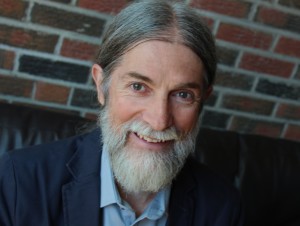
As a counsellor and psychotherapist working with people who struggle with substance use, addictive behaviour problems, and related emotional difficulties, my passion is to support them to reach the other shore—the shore free from the throes of addictive patterns, where a more meaningful and joyful life is a reality. When I witness this amazing transformation, I feel a quiet but pervasive sense of satisfaction, which is the best reward a practitioner in this field can receive.
Work Experience: Counselling and Teaching
My experience in addiction counselling and harm reduction therapy has been gained through working at the Centre for Addiction and Mental Health (CAMH), Toronto—a leading institution of its kind in Canada, which combines clinical client care, education, research, policy development and health promotion—and other addiction treatment and community service agencies. Providing counselling services in both individual and group formats, I have assisted many individuals struggling with addiction, mental health difficulties, and related issues to live healthier and happier lives.
From 2010 to 2015, I taught in the Addictions and Community Services Worker diploma program at Everest College, Scarborough. As a Lead Instructor, I taught all 15 core courses in which students were studying the fundamentals of addiction and its impact on individuals, families, and different populations and communities. They learned about assessment and treatment planning procedures, treatment models and counselling approaches with individuals, families and groups, relapse prevention and case management skills, ethics and communication, psychology and pharmacology.
Since 2016, as a part-time professor, I have been teaching psychology, addictions, social and political theory, and communications courses at the School of English and Liberal Studies at Seneca Polytechnic (formerly Seneca College), Toronto.
Certifications
I am registered as a psychotherapist (RP) with the College of Registered Psychotherapists of Ontario (CRPO). I am an International Certified Alcohol and Drug Counsellor (ICADC) and Canadian Certified Addiction Counsellor (CCAC), a member in good standing of the Canadian Addiction Counsellors Certification Federation (CACCF), and also certified as a tobacco cessation specialist by the University of Toronto and the CAMH.
Educational Background
My educational background includes a variety of disciplines in philosophy and social sciences, which I have studied at undergraduate and graduate levels. In addition to my addiction and mental health specific counselling education—obtained in the post-graduate program at Durham College, Oshawa, as well as by participating in numerous professional development workshops, retreats, and courses—I am trained in transpersonal psychotherapy and mindfulness-based approaches to dealing with life challenges, stress, depression and addictive behaviours.
Among many teachers and mentors that have shaped my own professional and spiritual development—to all of whom I extend my sincere gratitude—I will mention here only a few: Larry Jelinek of the CAMH, whose gentle guidance set my career in the field in motion; Walter Cavalieri, who opened my eyes to the humanity of harm reduction practical philosophy; Michael Stone, who revealed to me the importance of mindfulness meditation in clinical practice; Gabor Mate, whose profound writings and lectures teach us how to understand and compassionately respond to the hungry ghosts of addiction; Brent Mitton and Moira Canes of the Transpersonal Therapy Centre, who showed me how to connect deeply with myself and others and steered my life canoe on the liberating path of heart opening; Sarah Bowen and Neha Chawla, the developers—together with Alan Marlatt—of Mindfulness-Based Relapse Prevention for Addictive Behaviours, and Zindel Segal, the originator of Mindfulness-Based Cognitive Therapy for Depression, who taught me many effective practical techniques of changing one’s relationship with his or her own experience, which is ultimately at the root of a more skillful and less unsatisfactory way of living.
The Path
In my personal and professional life, I strive to bring the attitude of mindfulness, kindness and compassion to all aspects of my daily activities and relationships. To live with awareness, reverence, and simplicity is the path.
… and never hurry through the world
but walk slowly, and bow often.— Mary Oliver
